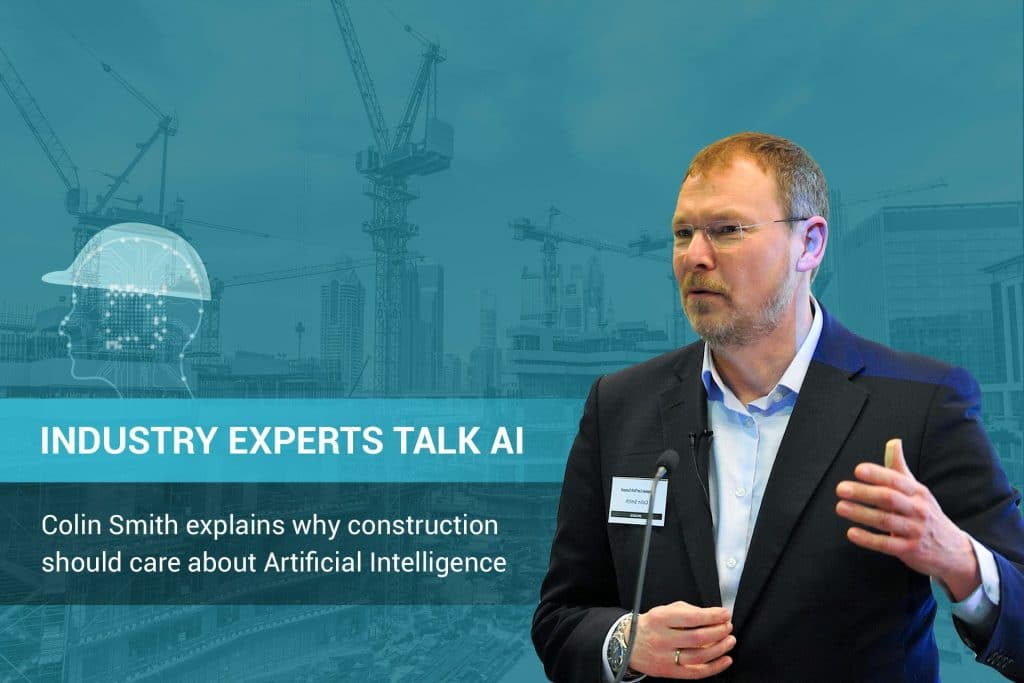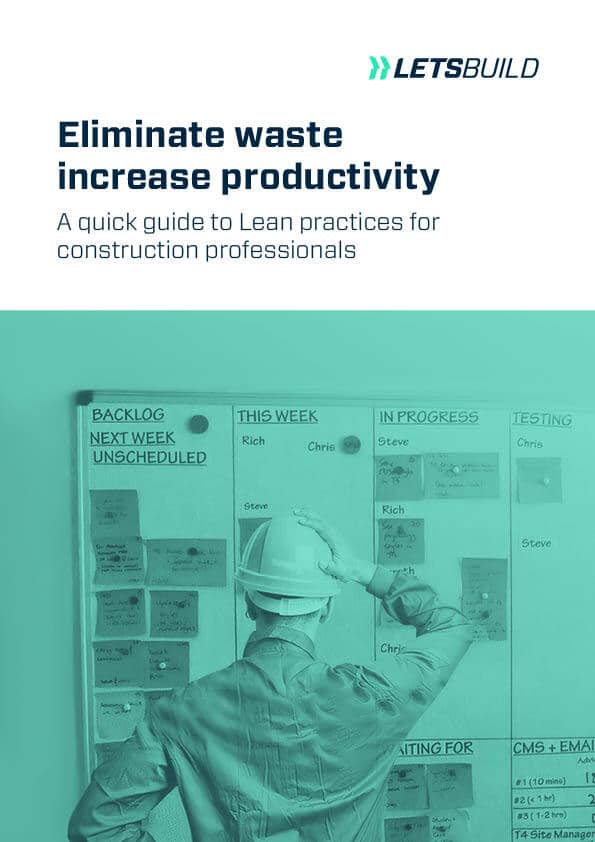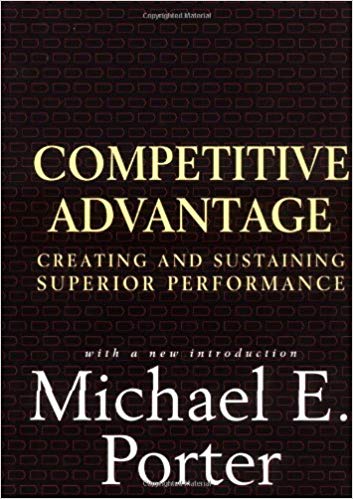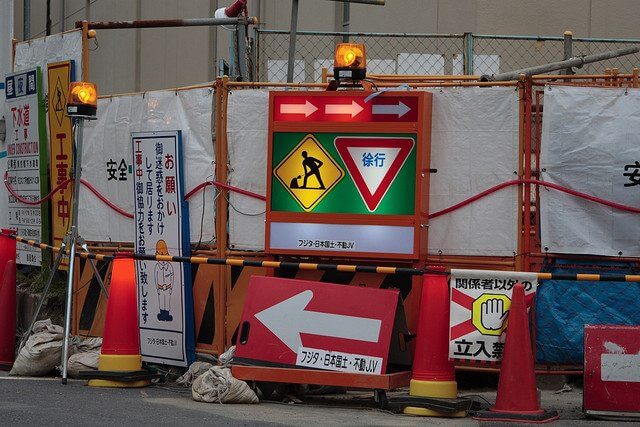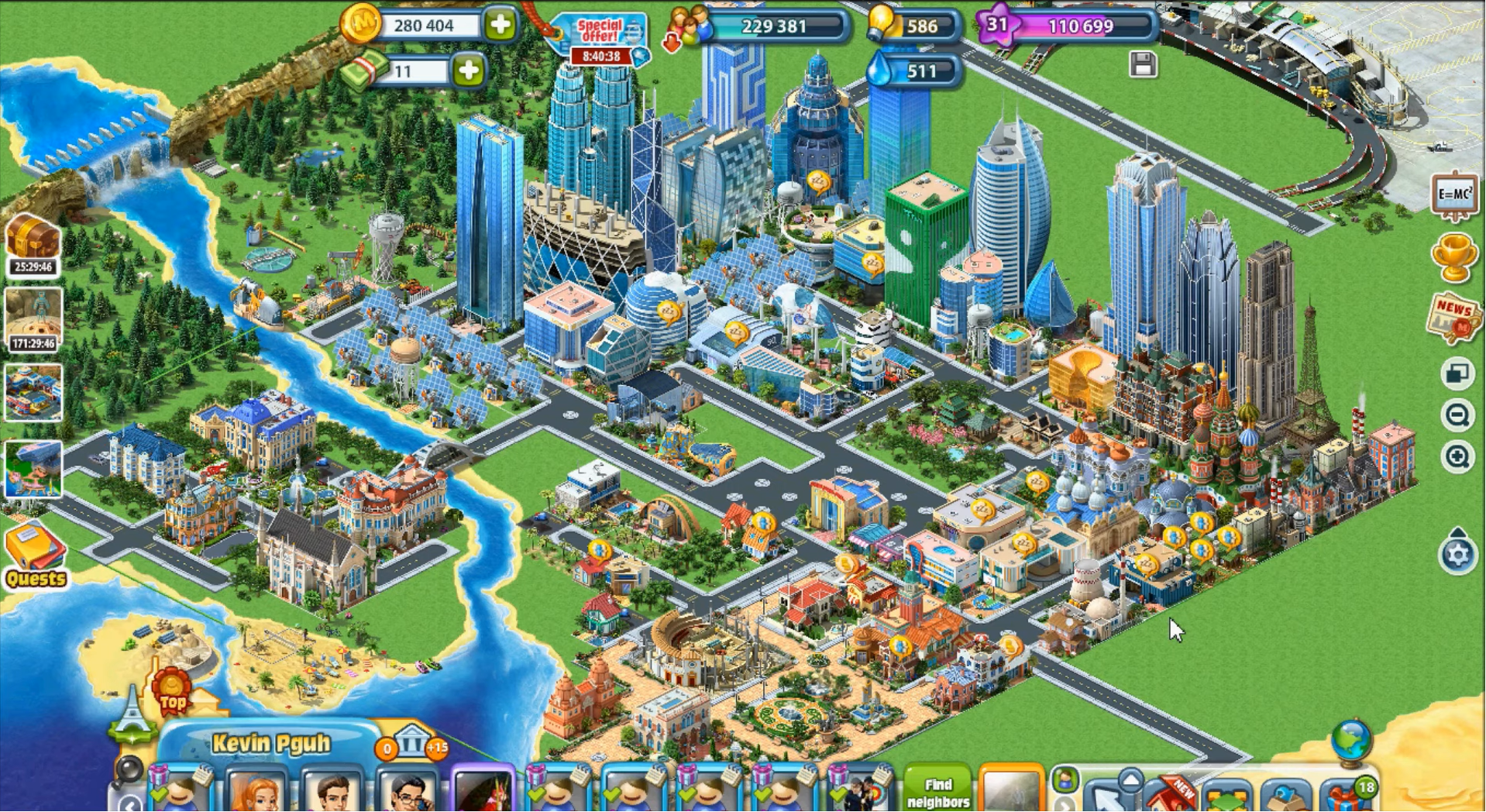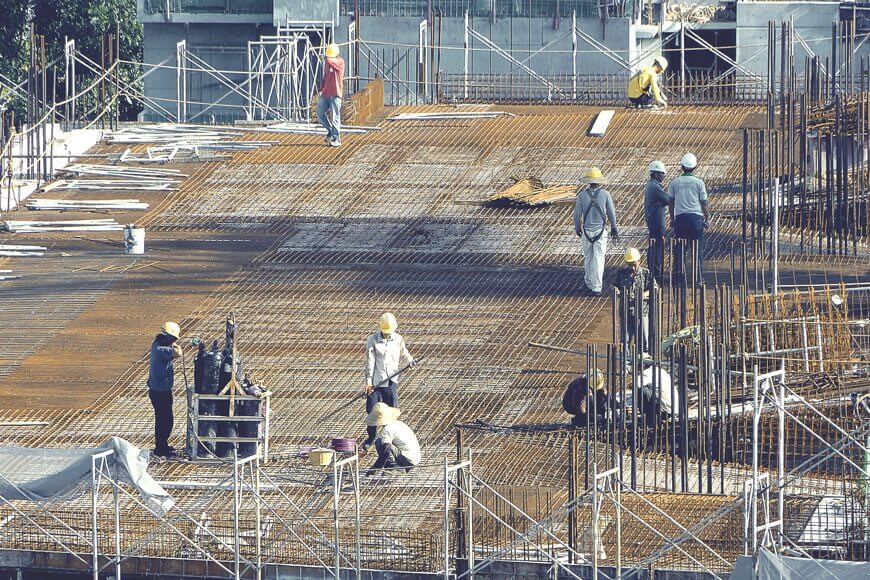Some weeks ago we talked with Benjamin Dyer, CEO and co-founder of Powered Now, about the crucial role of Artificial Intelligence on the new age of construction.
Today we are back with the third part of our interview series ‘Industry experts talk AI’. We have a quick chat on the reasons why construction should care about artificial intelligence with Colin Smith, Chairman at Cyclr Systems.
What is you favourite book?
‘Zen and the Art of Motorcycle Maintenance’. I’ve read it four or five times. I could talk about motorcycles all day long and motorcycle maintenance, but actually it’s not really about motorcycles and it’s really not about motorcycle maintenance either. It’s a philosophical book and from it I’ve learned a lot of lessons in life. It’s a very deep book.
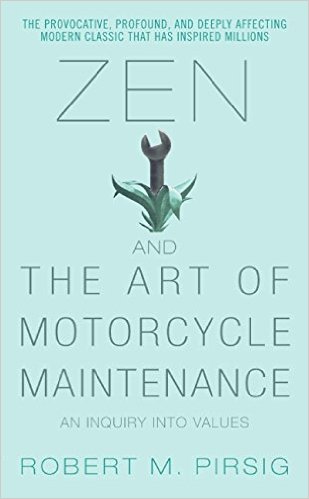
And your favourite Business book?
I think probably, ‘Competitive Advantage’ by Michael Porter. It had a profound effect on my business career. So read that.
What is your favourite film?
It has to be Gladiator!
Where and how do you work best?
Where I work best is on my feet in the middle of a team. When we’re trying to either solve a problem or more interestingly, try to come up with something creative that would generate income. So that’s when I’m at my best. If I’m work work as in doing something, then I have to be in my study where it’s completely quiet and I have no distractions. I’m quite disciplined about that. So if I’m going to sit down to do something, I’ll shut myself away but really I’m best in the middle of a team. That’s my favorite place.
Should construction care about AI?
Yes, hundred percent. For me AI will be a big step forward. And without kind of pointing to specific instances of how AI could be used at that generic level, it’s all about improving quality and consistency in my view.
Is the industry ready to fully leverage AI?
Well there’s the thing, no is the answer. But therein lies the great opportunity for all comers. So if you’re a technology provider and you can come up with a practical application of AI that’s not rocket science.
People don’t like being told what to do by AI but if you can use AI judiciously to help support decisions, or to take the processes on, or to authorize payments or stuff like that, categorize data. There is the opportunity for you as a technology provider, and also for construction companies who can then become best in class in their thing.
In the days of BIW, we worked very closely with Mace to build tools to support their bid process. Yeah. They were a very enlightened company and they understood the value of better information.
Are there any areas more susceptible to AI now? Low hanging fruits?
I don’t think it’s so much about low hanging fruits, I think it’s more about stuff that’s not too threatening. So for example, one big issue that we had with BIW was classifying data as it came into the extranet. That’s the perfect job for AI. It is a great way for you to understand what’s happened in the past and making things more accessible. So that’s the low hanging fruit. I don’t know whether that’s rocket science though but yeah.
In 5-10 years what could AI do for AEC?
Well the holy grail of course is predictive analytics, isn’t it? So really what we want AI to do is to say, I have noticed if the current conditions persist then this is what’s going to happen. So if someone raises an early morning notice somewhere down in the bowels of a project, AI should be sitting in the background to say, well what does that mean? Does that impact time, does that impact programmes, does that impact cost and what do we do about it? Who do we need to tell about it? What are the remedial steps? What are the options? Back to my earlier point about consistency and quality. AI is your man for that. But that is in a while. A while from now.
What’s the best advice you ever received?
I think the best advice I’ve ever received is, when you reach the crossroads pick an exit and take it. So don’t get stuck at the crossroads is the thing. You’ll find in your career that you’ll come to points that you’re not quite sure what to do next and there’s an array of options.
My experience now and I’m thirty five years into the game is, to be honest it doesn’t really matter which exit you take, pick one and wholeheartedly commit to it and don’t look back. That’s the best advice I’ve ever had, it’s all about momentum. Getting stuck at the crossroads, that will kill you every time. And if you’re in a leadership role especially, it’s so important that you don’t procrastinate. You’ve got to be reasoned and you have to be rational but if there are three potential routes that you could take, take one and get on with it and don’t look back.
What’s next for you?
Well I’m enjoying my non-exec roles very much indeed. And the fun I get from that is I get to leverage my experience and my knowledge but I don’t have to work fourteen hour days anymore. I can leave that to folks that are younger and fitter.
So I’m enjoying that a lot. I’m just about to invest as I’ve told you in a business which is all about integration, and I’m pretty excited about that. I think that is the key to the future in my view. On applications is the great big lumps of software too hard to deliver, you need something that’s incremental and implicit. You need an integration platform to tie those pearls together into the pearl necklaces. So that’s the next project for me.
Read also: Rob Charlton on the future of AI in construction
In a broader level, I’m still very interested in construction and I’d like to make a bigger impact. I’ve made some impact, I think some of the technologies that I’ve built have improved the industry but I would still like to make more. And I think the reason why I’m interested in this particular process today about investment is that I think that is the thing, that ultimately is the real issue.
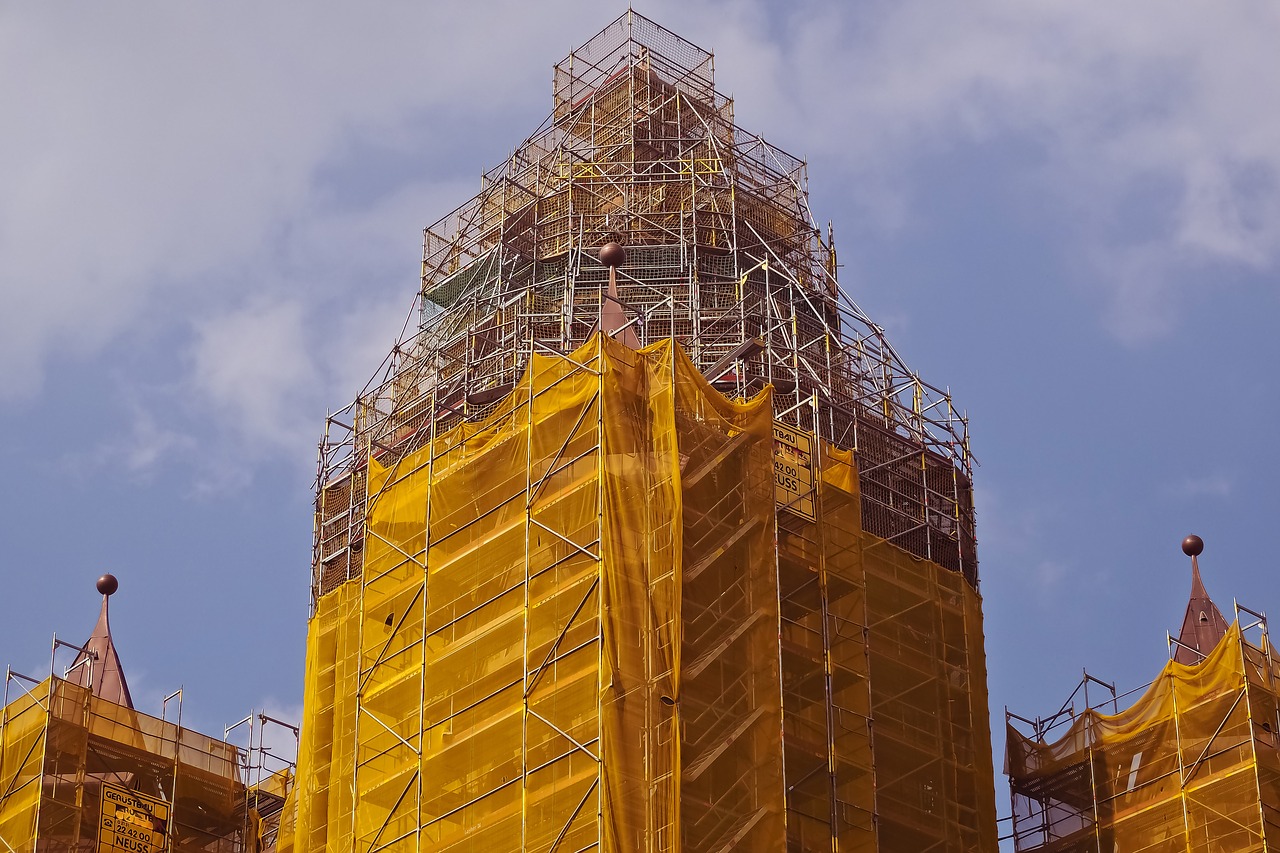
So what the construction technology providers need is investment and with that investment there are great gains to be had. Aconex sold to Oracle for 1.2 billion dollars. Textura sold to Oracle for 623 million dollars. And I can explain exactly why those businesses were worth that and more.
It’s a massive global industry and increasingly becoming globalized and technology I think, we’ve reached a little bit of a watershed in technology terms. Where it used to be, if you want everything to work together you had to buy all from a single vendor. That’s no longer the case. So I think you can put together your string of pearls of software that’s necessary to suit your needs. And those pearls can be different for different departments, teams, projects. You can have very sharp tools to support the doing part of the work and you can be very agile and very collaborative. And with technologies like the blockchain that can all be done in a secure and transparent environment.
So I don’t think we’re at the crest of the wave yet. I think we’re before that point but I think there’s a great journey ahead now. Where new technology will come in, some of those old suppliers will be cleared out and so it’s a land of opportunity, I believe. Which is why I’m still active in this space.
Colin was interviewed by Gari Nickson. Gari is an expert in the application of artificial intelligence in construction. He’s an entrepreneur, co-founder of GenieBelt, and adviser to Contractor Freedom. Follow Gari on Twitter – @garinickson
